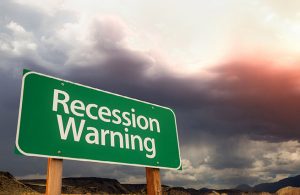Could Looming Recession Endanger Remote Work?
 The ability to work from home has been a lifeline for many during the COVID-19 pandemic, but some feel that a recession could jeopardize that perk. The coronavirus pandemic forced millions of American workers to do their jobs from home.
The ability to work from home has been a lifeline for many during the COVID-19 pandemic, but some feel that a recession could jeopardize that perk. The coronavirus pandemic forced millions of American workers to do their jobs from home.
It was a challenging adjustment for some, but overall, working remote proved to be a lifesaver for many people who otherwise would have lost their jobs or had to take significant pay cuts. It then evolved from something that needed to be done to something people wanted to do.
A study from McKinsey found that 58% of respondents work from home at least one day per week, while 35% stated they could work remotely five days per week. The study also proves it’s a highly desirable benefit because 87% of the respondents would work flexibly if they could.
Unfortunately, some believe this perk could be in danger if the economy worsens and we enter a recession. In a recession, employers have more power. They can be more selective with their hiring, and they can get away with offering lower salaries.
This puts employees in a position where they have to take whatever job they can get, even if it doesn’t allow them to work remotely. As a result, employers could demand that employees return to the office full-time. For example, Elon Musk has already brought all Tesla employees back to the office, and other companies are sure to follow suit if the economy weakens.
According to Kastle Systems, in March 2022, US office occupancy rates reached their highest point since before the pandemic. Office occupancy rates hit 42% of pre-pandemic levels compared to 18% in December 2021. And this figure is likely to rise if the recession hits. Whether or not the US is officially in a recession, companies are starting to tighten their belts.
For example, as of early August, the US tech sector has laid off more than 37,000 employees, with companies like Shopify laying off 1,000 employees, Netflix around 450, and Coinbase 1,100. Other industries are following suit, with companies like Warner Bros Discovery, Tesla, and OneTrust announcing layoffs, while companies like Uber and Meta (Facebook) announced hiring freezes.
Despite all these layoffs and hiring freezes, the job market is still relatively strong.
The unemployment rate in July was 3.5% which is still much lower than the historical average of 5.8%. However, if the recession hits, this number will surely rise, and employers may take advantage. This could mean many employees will have to give up the ability to work remotely.